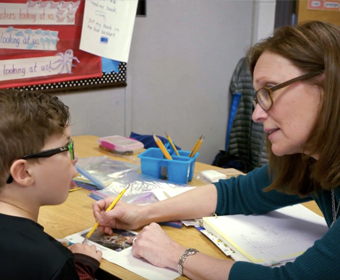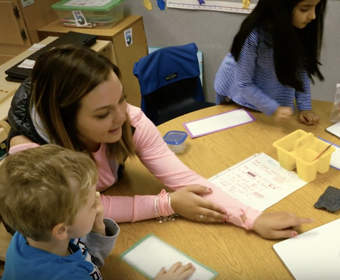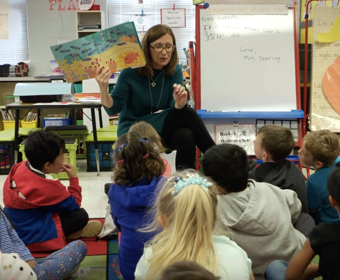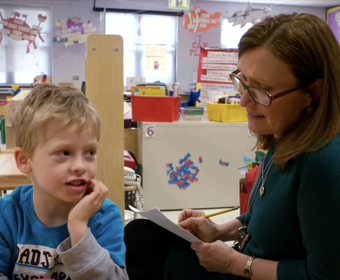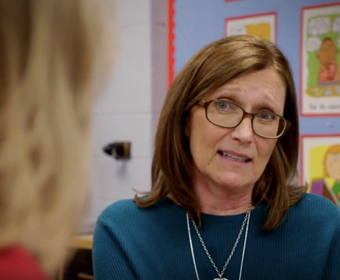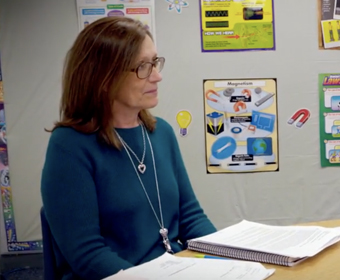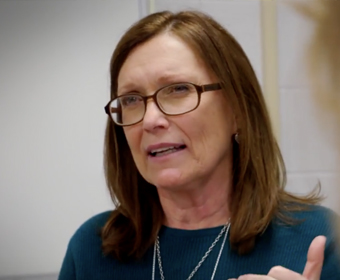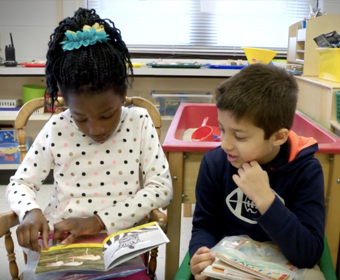The reflection conversation plays an important role in the observation/teaching process. In this discussion, you will see Kim Deering, the teacher, and the Kindergarten Coach, Karen Smith immersed in an opportunity for BOTH to learn and grow through CELEBRATIONS/ CONCENTRATIONS of teaching and student learning. The teacher/instructional coach discuss specific examples of how Kim adjusted the learning process during the lesson when she noticed that many of the students were struggling with “less than”. Together they build on what did work: Kim asking questions, prompting thinking, developing a math anchor chart, all in order to address confusions that existed in the whole group lesson. Karen provides feedback through “I noticed..” and “I wondered…” questions that help Kim to determine specific CONCENTRATIONS with aligned NEXT STEPS and RESOURCES of SUPPORT. Feedback aligns to The Framework for Teaching Clusters and The Framework for Teaching Components and the teacher’s specific areas of interest. (Cluster 5-Successful Learning For All; In reflecting on the lesson, the teacher has specific ideas about how the lesson could be improved. The teacher cites student assessment data take will be taken into account in future planning; Distinguished)
Resources
- The Framework for Teaching Evaluation Instrument, 2013 Edition
- The Framework for Teaching: Six Clusters Supporting High Level Learning, 2017 Edition
- Framework Cluster 1: Clarity of Instructional Purpose and Accuracy of Content “Quick Notes” Observation Tool
- Framework Cluster 2: Safe, Respectful, Supportive, and Challenging Learning Environment & Cluster 3: Classroom Management “Quick Notes” Observation Tool
- Framework Cluster 4: Student Intellectual Engagement & Cluster 5: Successful Learning for ALL “Quick Notes” Observation Tool
- Framework Cluster 6: Professionalism “Quick Notes” Observation Tool
- Early Learning Planning Conversation Protocol
- Early Learning Reflection Conversation Protocol
- Ms Kim's Lesson Plans

